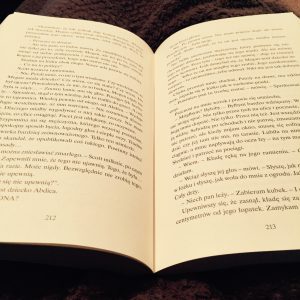
As a teacher, using an inspirational story to make your point can be very impactful. Rav Yaakov Greenwald once joked to my father-in-law, “Lo hamedrash hu ha’ikar, elah hama’aseh – the ikar is the story, not the teaching.” There is actually a lot of truth to that joke. Often people retain a story far longer than abstract information. The Dubna Maggid, the consummate storyteller, was once asked by a student why he always used stories to convey his inspirational lessons. “Sure, I can answer you. Let me tell you a story,” he said with a twinkle in his eye.
“There was once a child who was very ill. He needed to take his medicine but he was sure that he wouldn’t like its taste so he refused to open his mouth. In desperation his mother thought of the following idea. She hired an entertaining storyteller to tell the child some stories. The storyteller was captivating! He was funny and dramatic, and really held the boy’s attention. Whenever the storyteller told a funny joke, the boy would laugh loudly and open his mouth. As soon as the boy’s mouth was opened the mother would quickly put a bit of the medicine in the child’s mouth. The child was so entertained that he barely registered the medicine. When the storyteller would act out a dramatic scene, the boy’s jaw would drop in vicarious excitement. The mother would then quickly put some more medicine in the boy’s mouth. In this manner the boy got better because of the power of a good story.”
The Dubna Maggid turned to his student. “And that us why I always tell stories. We teachers have important “medicine” to share with people. Sometimes people are resistant to open their mouths to the medicine. A story helps me sneak the medicine in.”
The truth is that so much of the cultural entertainment that draws people’s attention is based around storytelling. People are naturally drawn to a good story. Torah teachers can very profitably harness this natural human proclivity for matters that are truly important. Over the years I have gathered a very large collection of inspirational stories. I have categorized them according to different mitzvos. I have more than 1000 inspirational stories that I have found to be shaveh lekol nefesh, and can be appreciated by both religious and secular audiences.
Based on many requests, I will be making these stories and the story categories (organized according to mitzvos) available for other teachers (or anyone) to use. I will start making these “story bundles” available one week at a time. As many of you know, I currently send out a weekly column sharing an engaging moral dilemma that can be shared at the Shabbos table. Baruch Hashem this has proven to be quite popular with educators. I will include a link to the new inspirational stories in my weekly moral dilemma column.
You can receive these stories or moral dilemmas by clicking here.
With great respect for all of your extraordinary work.
Warmly,
Yitzi Weiner



















